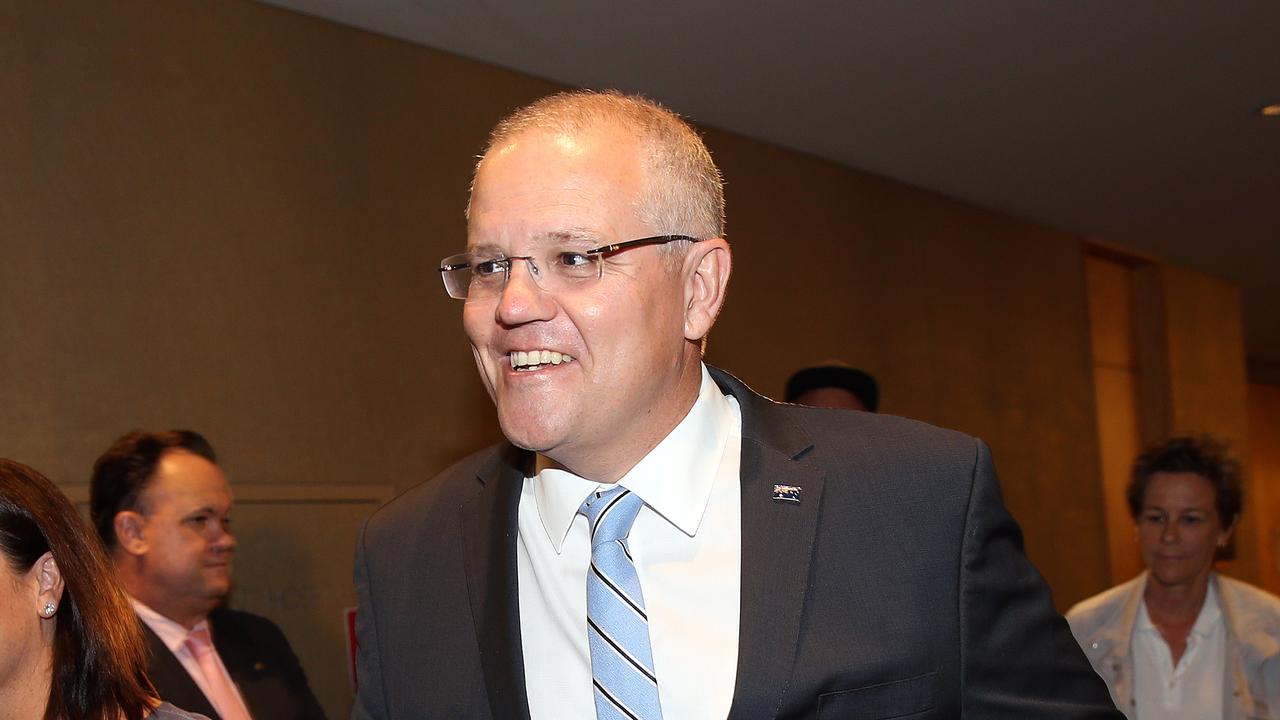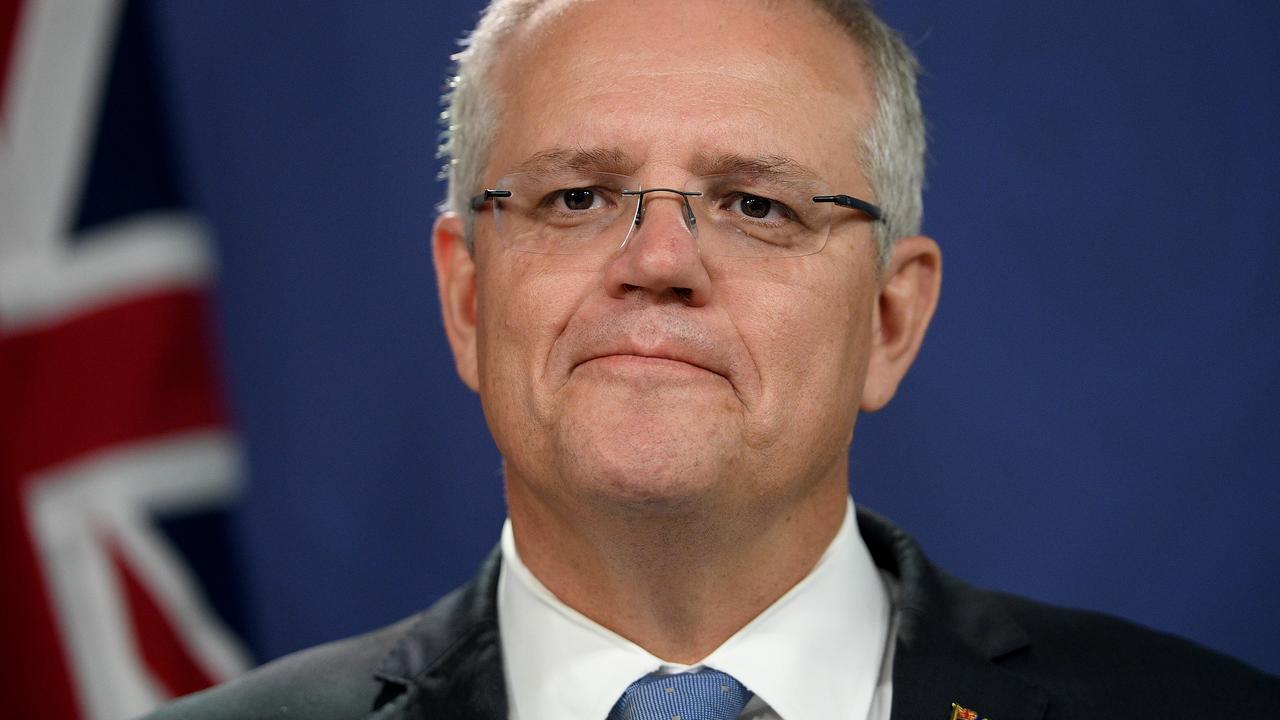Scott Morrison’s first budget, to be brought down in nine days, is unprecedented in its timing and unparalleled in its scope.
The 2016-17 budget will be presented to parliament during an election campaign that will be formally declared just days after Bill Shorten delivers Labor’s budget-in-reply speech at the end of the 44th parliament.
Like no other budget before, Morrison’s first will determine the economic landscape for the ensuing eight weeks of the formal election campaign and largely determine the fate of the first Turnbull Coalition government.
Given the political upheaval that has gone before, the importance of the Senate election in this first double-dissolution poll in 30 years and the confusion and uncertainty surrounding the Coalition’s economic and tax policy of late, this can be no normal “giveaway” pre-election budget.
Indeed, it has to be much less of a budgetary prescription for the next 12 months and much more of an economic vision for at least the next four years.
It is also the Coalition’s all-in-one chance to reposition itself as the electoral frontrunner, instil confidence in the economy, reassure voters about the future, quell the disappointment in Malcolm Turnbull as the new leader, take advantage of incumbency, regain political and policy momentum and, finally, reverse the perceptions that the Coalition is behaving like an opposition.
After eight months of Turnbull as Prime Minister, the Coalition’s runaway lead and his stratospheric popularity have, respectively, disappeared and dwindled. According to Newspoll, Labor now has an election-winning two-party preferred lead over the Coalition, with the past two surveys showing 51 to 49 per cent.
Since the end of January, when the polling decline began, the Opposition Leader and his Treasury spokesman, Chris Bowen, have been scoring easy points off the Coalition on economic and tax reform policy because the government has appeared confused, divided and uncertain about key economic priorities and reforms.
The government’s message has been about raising the GST, and then not; pursuing negative gearing, and then not; proposing state income tax, and then not; concentrating on tax cuts to relieve the crushing burden on wage earners of bracket creep, and then not; and criticising higher excise on tobacco, and then not. There was going to be a tax statement before the budget and now the budget contains the tax and economic statements.
This policy vacillation, accompanied by high expectations that are dashed, has given Shorten and Labor’s economic team an unmerited free ride over a handful of policies and promises that go nowhere near addressing the long-term spending, debt and revenue problems facing Australia.
This week was the 10th anniversary of Peter Costello’s “debt-free day” when, as treasurer, he announced that Australia had “paid off the mortgage” after wiping out an accumulated $96 billion in debt after the government lived within its means, produced budget surpluses and retired debt instead of spending on new projects. Today there is net debt of $300bn and rising.
Though Turnbull and the Treasurer now talk about the “transitioning economy” from the mining boom to the new services sector, much of the heavy lifting had been accomplished before the arrival of the mining boom.
Costello’s first budget was his toughest and arguably his best. Not only did he deliver swingeing spending cuts, the public accepted it had to be done.
Morrison is faced with a different challenge: he, too, has to talk about “living within our means” but he also has to go to an election within two months, not two years. There also have been two Coalition budgets already, famously poorly received and even more notoriously blocked in the Senate by Labor.
As a result, Morrison has to provide an electorally credible economic vision, acceptable tax changes — there will be tax rises and tax cuts — and not destroy business confidence or frighten voters. The Treasurer has to do all of this while the government appears to be reacting to the opposition’s agenda and will look like a fish in a barrel until May 3 when it can talk about the economy and tax reform. Naval building announcements help boost the Coalition’s stock, particularly in South Australia, and provide the advantage of incumbency, but a poorly received budget — by voters or the economic rationalists — would be a body blow to the Coalition.
In recent years, the “budget bounce” in the polls has virtually disappeared and it would be unwise of government ministers to talk of a bounce, even if they expect it, because a “dead-cat bounce” will create real fear in government ranks. There’s already enough trepidation and frustration among MPs to stall campaigns in marginal Coalition seats.
For these reasons, while it is still less likely that Labor can win the election, Morrison has been framing the be-all and end-all 2016 budget as a plan designed to change the trajectory, across time, of rising debt, increasing tax as a proportion of gross domestic product and lifting budget deficits.
Joe Hockey and Wayne Swan both sought to set a target for deficit reduction and cutting the growth of tax — and both failed in the public eye — and Morrison must convince voters that while he is not going to make immediate inroads, he will “over time” start down the Costello road to a “debt-free day”.
For weeks Morrison has sought to talk about the budget not as a one-night document but a plan or vision across time. “The budget is an economic plan to ensure that we provide for growth and jobs to drive this transition that is occurring in our economy,” he said in a keynote speech two weeks ago.”
While reacting to Labor’s initiatives, the government has not been able to talk about its own and has spent insufficient time attacking Labor’s approach, proposals and obstruction. Too often central themes are passed over after seemingly ticking the boxes with insufficient focus being paid to the economic underpinnings of the whole reason for a double-dissolution election, the reintroduction of the building industry watchdog, the Australian Building and Construction Commission, and its previous contribution to national productivity gains.
Having a couple of ministers say it’s true is no substitute for an unrelenting focus on Labor and the unions. Likewise, Labor got away to an easy start on the calls for a banking royal commission for want of a spirited, old-fashioned prosecution of the argument that a banking royal commission represented the threat of Labor’s dark old bank bashing days.
This is why the budget now represents the Coalition’s greatest single chance of restoring momentum and winning the next election, apart from the risky, defeatist attitude of simply saying Shorten won’t last through a long election campaign.
Oppositions don’t lose elections; governments do.




To join the conversation, please log in. Don't have an account? Register
Join the conversation, you are commenting as Logout